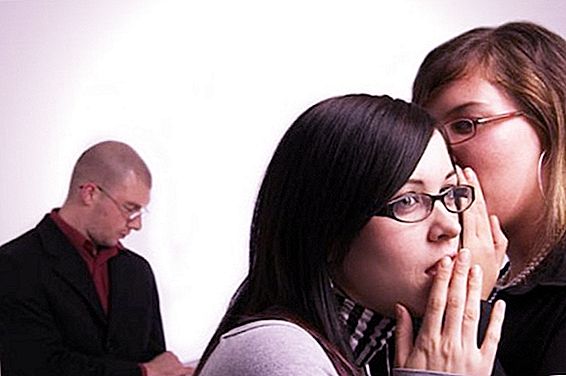In any community, there are people who are at the top of the hierarchical ladder. They are respected, influential, and respected. There is also a special role, which is conditionally called the scapegoat. To someone who for some reason falls into this niche, it is not so easy to get out of it. What are the reasons for this role?

Any team is designed so that to some extent it needs someone to whom it is possible to pour negative emotions and sometimes make it guilty of common problems. This is especially pronounced in dysfunctional, conflict groups, sometimes in families. A suitable candidate involuntarily finds himself in certain situations, and the rest of the team members, without agreeing, behave accordingly - blame this person on something and are somewhat neglected. Is the situation familiar?
The fact is that such a person is used as a lightning rod of negative emotions and performs to some extent an important function for the team. Unfortunately, all people are imperfect and sometimes feel the need to shift the share of responsibility to another person or circumstances. And here a man arises whom the community turns into a "scapegoat."
However, not every person can be placed in this role. Sometimes this role sticks to a person, often for a long time, and sometimes a potential candidate for this role does something that pushes him out of this role, despite all the attempts of the team.
Let's look at what qualities a person can put him in this role, and which not.
Low self-esteem
One of the main qualities that can be observed in all scapegoats is low self-esteem. It’s as if they themselves are ready to be treated very disrespectfully, because they feel so. The reason may be unfavorable relationships in the family or other traumatic experiences in peer groups.
Hidden ambitions
Any person who falls into the role of the scapegoat, along with the lack of a sense of one’s worth, has a very strong desire to occupy a high status in the team, to feel superior to others. This desire arises as a counterweight to the true situation among people - rejection, rejection. In other words, this can be called impaired ambitiousness, when the main need is not so much the desire to occupy a high place in the hierarchy, but the desire to surpass others, showing rejection.
And then the most interesting thing happens. How do others feel about someone who, on the one hand, does not value himself, but on the other, wants to feel superior to others? Such a person causes disrespect and a desire to “put himself in his place”, which is what the collective is happy to do in the future, satisfying its own needs.
